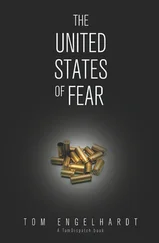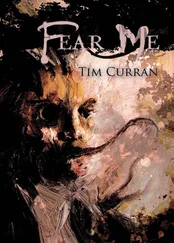“I mean,” I said, “maintained. Paid for, housed, clothed, and whatever else you might imagine, in exchange for his pleasure.”
This came out more harshly than I had intended, although it was certainly the truth. I glanced at Henry and saw an expression of gloom settle over his features, a brooding look, almost angry. I thought that he must be quite an innocent to have had no experience or awareness of such an arrangement. Our paths diverged at the next corner, and Henry mumbled his goodbye and walked off under a cloud, carrying his banjo.
I let the others know that we would be adding an extra attraction for one number in the second part, on Saturday two weekends hence. There was curiosity and more or less happy acceptance from Powell and Burke; as they never heard the other acts in advance, they were satisfied to accept my brief précis of the situation. Mulligan, of course, had already been apprised, and he kept his own counsel, although I sensed from his facial expression that his misgivings had had time to breed and perhaps ferment in the days since our conversation. Eagan on the other hand, would not let it alone.
“I had the idea that this troupe was a collaborative venture,” he said.
“What makes you doubt it, Michael?” I said.
“Some of us are now privy to a mystery, for which the troupe as a whole is footing the bill. And a Mexican, in the bargain. Who is this fellow, anyway? I suppose the troupes of Austrians were not enough. At least they are white men.”
“I am paying for this out of my personal receipts, Eagan,” I said. “So you needn’t worry about the impact on our finances. And in what way does his color weigh on the discussion, Brother Scamp?”
This question stopped him momentarily, although he recovered himself enough to mutter, “I don’t care for intrigue.”
It was only with the greatest effort that I was able to restrain myself from mentioning his own arrangement with Rose in this connection, but I did restrain myself, and the matter of Juan García was allowed to rest, for the moment, without further discussion.
And I waited for the day to arrive, full of anticipation. So much depended upon the success of our scheme. I knew nothing about Henry, really, nor did he appear to care who I was or where I had come from. The point of our intersection, the plan we had improvised, the music we made, was what mattered. How lucky we were, I thought, to have the theater. What would any of us do if we did not have these roles to play? If you could truly see into the face in the mirror. . well, who among us would willingly do that? And if we knew who stood next to us at the market, or who passed us on the street, who sat beside us in the theater, if every grave could speak, as in the old ballads, we might not be able to bear living. We never do truly know what others think. And may it please God they never learn what is in our own black hearts.
In the still of the day the horse carried him slowly along the graded path under the elms, past the quarters toward the mansion house. Dragonflies hovered and zagged in the shimmering heat. The few slaves he passed averted their gaze. The rifle in the hide sheath; the turned, whitish eye. Nobody could have mistaken him for good luck.
He had been summoned and had come in his own good time. Stephens he knew by reputation, as he knew most of the planters in the area. A drunk with pretensions, a notorious libertine with a big library of books, so he’d heard. And a succession of slave mistresses whom he kept like wives until he tired of them and turned them out, either for sale or to the fields. Nothing very unusual about that, except for the artifice of keeping them dressed well and living in the house. Tull had heard that Stephens had taught two of them to read. Or had someone teach them. The real wife, the white one, had died some years back.
The man’s house boy had been gone five months. Stephens placed newspaper advertisements, had handbills printed and posted both locally in Virginia and in Northern cities, increased his reward offer, all to no avail. And had finally sent a message to him, enlisting his aid. It was, he would have been the first to admit, a last resort. Not only because of the expense — a daily allowance in addition to travel funds and incidentals, along with the reward money itself — but because of who and what he was. No respectable person would have much to do with Tull Burton. Especially not a lace-curtain bitch like this James Stephens.
Stories about Burton were his calling cards. Three years earlier, a strong and unbroken slave named Silas had run off from Fontainebleau Plantation, twenty miles to the south, and was rumored to be hiding in a swampy tract of woods another ten miles out. The plantation overseer would not go after him, and the master, a fop in green velvet, had sent for Burton. With two accomplices and two dogs, Tull had tracked the runaway into the deep woods and found him in a tree, from which he refused to descend.
Tull had been through it before, and he always felt anger at the runaways’ refusal to acknowledge the nature of the situation, at the waste of time and energy, the forestalling of the inevitable. It was an overcast day, chilly and disagreeable to begin with.
“Come on down, Silas,” Tull said. “You’re going home one way or another.”
“I don’t have to talk to you,” the runaway said.
“You’re going to suffer more than you need to,” Tull said. “Get down now.”
“Shit on your mother, drunk.”
Tull nodded. To one of his men he said, “Start a fire over there,” indicating a spot ten yards away. The man handed his dog’s leash to the other assistant and went to gather some sticks.
“I don’t drink, Silas,” Tull said, pulling his rifle out of the sheath that hung alongside his saddle.
“I don’t have to talk to no white man,” the runaway hollered, his voice on the edge of hysteria. “I’m going to Cleveland, or either Mexico. .”
To his second man, Tull said, “Tie the dogs to the wagon and get ready to grab him.” The other had gotten the fire started.
“I’m not working no more, and I’m not getting whipped, and your mama likes when I stick it in. .”
Aiming for the runaway’s shoulder, Tull fired one shot, which hit the mark and caused the slave to lose his purchase on one of the limbs to which he clung. Hanging on with his other arm, he struggled to get a leg up over the limb. Tull aimed again and fired, and this time after a brief and futile twist of his torso the slave fell to the ground, making a gurgling sound, an animal sound, angry, pig-eyed. .
The two men lunged and grabbed him.
“Ohhh,” he hollered. “White man died on the cross for me. .”
Tull approached, bent down, and forced a dirty saddle rag into his mouth.
“See, nigger? You were right. You don’t have to say a thing.” Grunts, struggling. “Pull down those rags.” The breeches, secured by a length of worn and greasy rope. The man who had built the fire got them undone and yanked them down, exposing the runaway’s rubbery, flopping genitals. “You sure stink, nigger,” Tull said. “You ought to take a bath.” Tull pulled out his hunting knife and, saying only “Hold him,” grabbed and stretched the penis and cut it off at the root. The runaway emitted a choked scream from behind the wadded rag in his mouth; his eyes rolled back in his head.
Tull tossed the wad of flesh onto the ground by the dogs then walked to the fire and held the tip of the knife blade in the flame for fifteen seconds, turning it on either side. He walked back and, saying “Hold him steady,” cauterized the nub as the unfortunate man in his care writhed and twisted.
Читать дальше










